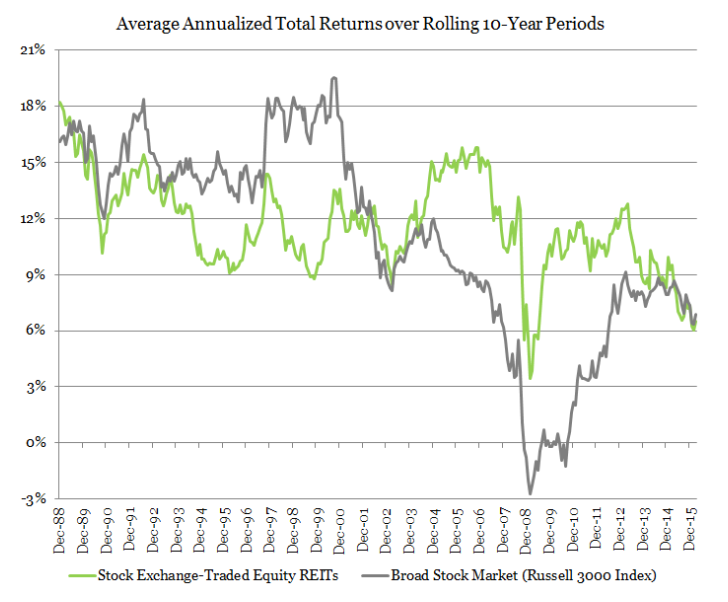REITs vs Real Estate Syndications – Why Not To Invest In REITs
A new Passive Investors Circle member recently asked, “Hey Jeff, is a REIT the same as a syndication?” This was from a doctor that had decided to focus on passive investments and was trying to decide which route to go.
Let’s start off by defining exactly what a REIT is.
What Is A REIT?
When investing in a REIT, or real estate investment trust, you’re buying stock in a company that invests in commercial real estate. They can either be private or public.
Examples include:
- hotels
- self storage
- retail centers
- office buildings
- apartments
Investors can purchase these shares via the stock market through the purchase of individual company stock, mutual fund or exchange traded fund (ETF).
So, if you invest in an apartment REIT, it’s like you’re investing directly in an apartment building, right? Well, not really.
Let’s take a look why…
7 Differences Between REITs And Real Estate Syndications
#1: Number of Assets
A REIT is a company that holds a portfolio of properties across multiple markets in an asset class, which could mean great diversification for investors.
Separate REITs are available for:
- apartment buildings
- shopping malls
- office buildings
- elderly care
On the flip side, with real estate syndications, you invest in a single property in a single market. You know the exact location, the number of units, the financials specific to that property, and the business plan for your investment.
Difference #2: Ownership
When investing in a REIT, you purchase shares in the company that owns the real estate assets.
When you invest in a real estate syndication, you and others contribute directly to the purchase of a specific property through the entity (usually an LLC) that holds the asset.
Join the Passive Investors CircleDifference #3: Access to Invest
Most REITs are listed on major stock exchanges, and you may invest in them directly, through mutual funds, or via exchange-traded funds, quickly and easily online.
Real estate syndications, on the other hand, are often under an SEC regulation that disallows public advertising, which makes them difficult to find without knowing the sponsor or other passive investors.
An additional existing hurdle is that many syndications are only open to accredited investors.
Even once you have obtained a connection, become accredited, and found a deal, you should allow for adequate time to:
- review the investment opportunity
- sign the legal documents
- send in your funds
Difference #4: Investment Minimums
When you invest in a REIT, you are purchasing shares on the public exchange, some of which can be just a few bucks. Thus, the monetary barrier to entry is low.
Alternatively, syndications have higher minimum investments, often $50,000 or more. Though they can range from $10,000 up to $100,000 or more, real estate syndication investments require significantly higher capital than REITs.
Difference #5: Liquidity
At any time, you can buy or sell shares of your REIT and your money is liquid.
Real estate syndications, however, are accompanied by a business plan that often defines holding the asset for a certain amount of time (often 5 years or more), during which your money is locked in.
Difference #6: Tax Benefits
One of the biggest benefits of investing in REITs versus real estate syndications is tax savings. When you invest directly in a property (real estate syndications included), you receive a variety of tax deductions, the main benefit being depreciation (i.e., writing off the value of an asset over time).
Oftentimes, the depreciation benefits surpass the cash flow. So, you may show a loss on paper but have positive cash flow. Those paper losses can offset your other income, like that from an employer/hospital.
When you invest in a REIT, because you’re investing in the company and not directly in the real estate, you do get depreciation benefits, but those are factored in prior to dividend payouts.
There are no tax breaks on top of that, and you can’t use that depreciation to offset any of your other income.
Unfortunately, dividends are taxed as ordinary income, which can contribute to a bigger, rather than smaller, tax bill. NOT good.
Don’t Miss Any Updates. Each week I’ll send you advice on how to reach financial independence with passive income from real estate.
Sign up for my newsletterDifference #7: Returns
While returns for any real estate investment can vary wildly, the historical data over the last forty years reflects an average of 12.87% per year total returns for exchange-traded U.S. equity REITs.

This means, on average, if you invested $100,000 in a REIT, you could expect somewhere around $12,870 per year in dividends, which is a great ROI.
Real estate syndications, however, between cash flow and profits from the sale of the asset, can offer around 20% average annual returns.
As an example, a $100,000 syndication deal with a 5-year hold period and a 20% average annual return may make $20,000 per year for 5 years, or $100,000. This takes into account both cash flow and profits from the sale, which means your money doubles (2X equity multiple) over the course of those five years.
Conclusion
So, which one should you invest in? As you can see from the list above, there seems to be more reasons why not to invest in REITs.
All in all, there’s no one best investment for everyone. I get that. But for the high-income doctor with a large tax bill, the more legal tax deductions available, the better.
If you only have $1,000 to invest and want to access that money freely, then investing in REITs maybe best.
If you have a more capital available and want direct ownership and more tax benefits, a real estate syndication may be a better fit.
And remember, it doesn’t have to be one or the other. You might begin with REITs (like I did) and then migrate toward real estate syndications later.
Or you might dabble in both to diversify. Either way, investing in real estate, whether directly or indirectly, is forward progress.
Are you ready to get going?
Join the Passive Investors Circle today.


